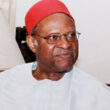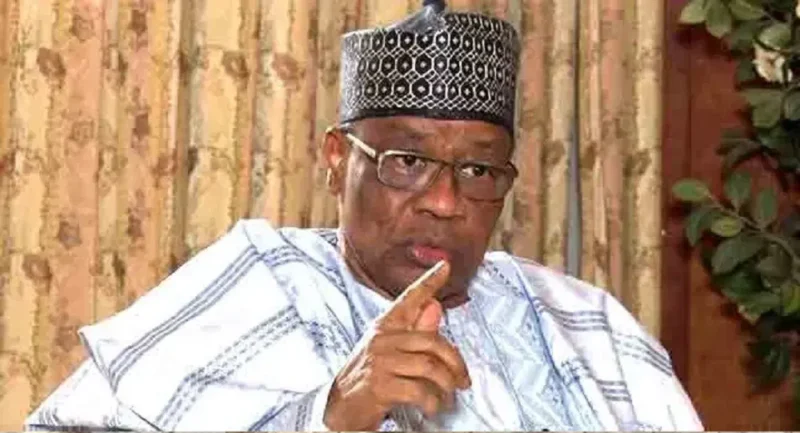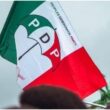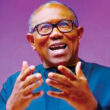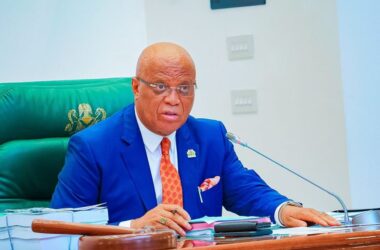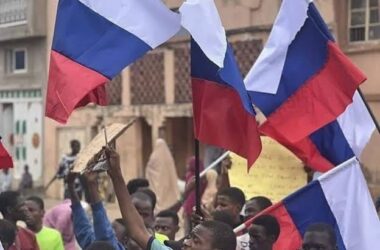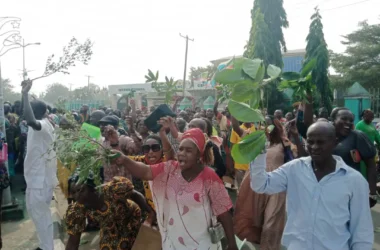Nigerians who suffered under the military rule of General Ibrahim Babangida (retd.) are demanding his prosecution for various human rights violations. Survivors, activists, and family members of victims have recounted their painful experiences during Babangida’s regime, which lasted from August 27, 1985, to August 26, 1993.
The call for justice follows the release of Babangida’s autobiography, A Journey of Service, launched on February 20, 2025. In the book, the former military ruler shared his perspective on his time in power, but many Nigerians insist that his actions caused irreparable damage to the country.
Babangida’s administration was noted for its harsh suppression of opposition voices. One of the most significant events of his rule was the annulment of the June 12, 1993, presidential election, widely regarded as Nigeria’s freest and fairest. The election was won by the late Chief Moshood Abiola, but Babangida’s decision to annul it led to widespread riots and protests. Reports indicate that security forces killed over 100 people during the unrest.
The regime also faced accusations of targeting journalists and media houses. The controversial assassination of investigative journalist Dele Giwa on October 19, 1986, remains a dark chapter in Nigeria’s history. Giwa was killed by a parcel bomb, an act many believe was carried out by state operatives.
Additionally, the regime carried out the execution of General Mamman Vatsa, Babangida’s childhood friend, who was accused of plotting a coup. Many believe that Vatsa’s execution was politically motivated rather than a justified punishment for treason.
Pro-democracy activists and legal experts argue that Babangida should face prosecution for his actions. Debo Adeniran, President of the Committee for the Defence of Human Rights, strongly believes the former military ruler must be held accountable.
“I was detained during the early days of the June 12 protests alongside Chima Ubani, Ebun Adegoruwa, and other comrades by Babangida. We were protesting in Ikeja when they arrested us and took us to Area F. We were remanded in prison by the Magistrate’s Court, Flower Garden, in Ebute Meta, Lagos,” he recalled.
Adeniran noted that the annulment of the June 12 election amounted to a rebellion against the state, leading to widespread killings, imprisonment, and forced exile of many Nigerians. He insisted that Babangida “has a lot to say, which he has not said” and should be prosecuted.
Similarly, Femi Aborisade, another pro-democracy activist, stated that Babangida’s so-called regrets in his book were insincere. He described the former head of state as a “tyrannical villain” who destroyed Nigeria’s democratic process.
“IBB is a tyrannical villain who should be tried for annulling the democratic electoral choice of the Nigerian people in the June 12 presidential election. IBB sheds crocodile tears. He is insincere in his so-called regrets. He has done incalculable damage to societal development,” Aborisade said.
The pain caused by Babangida’s regime is still felt by many Nigerians, including the family members of those who suffered under his rule. Morayo Brown, daughter of the late human rights lawyer Alao-Aka-Bashorun, expressed her disappointment over the way Babangida was celebrated during his book launch. She recalled how her father was repeatedly jailed for speaking out against the government.
Brown questioned President Bola Tinubu’s decision to associate with Babangida, despite knowing the hardships he inflicted on her father and other activists. In an emotional social media post, she wrote:
“My father warned Nigerians about this man (Babangida). My father did everything in his power to get this man to pay for his sins, but nothing happened. Men of valour fought with their voices, pens, and influence, yet Babangida reigned like a fearless hurricane, bulldozing all that was in his path.”
Jonathan Vatsa, the younger brother of the late General Mamman Vatsa, also demanded that Babangida make amends for his past actions. He insisted that his brother’s execution was unjust and that Babangida owed Nigerians an apology.
“He (Babangida) owes Nigerians an apology on so many issues. And it’s not only an apology he owes Nigerians. He should equally summon the courage not only to apologise but to also make restitution. Everything that he has taken from Nigerians that was not in the right way, he should return,” Jonathan Vatsa stated.
The controversy surrounding Babangida’s regime was reignited not only by his book launch but also by his claims about historical events. His account of the failed January 15, 1966, coup, which he denied was an Igbo-led conspiracy, has led to heated debates.
Some Nigerians support Babangida’s version of events, while others believe he is attempting to rewrite history. Journalist Oseni Rufai noted that Babangida’s statements challenged a long-standing narrative that the coup was ethnically driven. However, critics like Reno Omokri argue that Babangida’s account ignores key facts, including the deaths of non-Igbo officers during the coup.
Additionally, Raees Abacha, grandson of former military ruler General Sani Abacha, criticized Babangida for blaming his grandfather for the annulment of the June 12 election. In a post on social media, he described Babangida as a “betrayer and a coward.”



